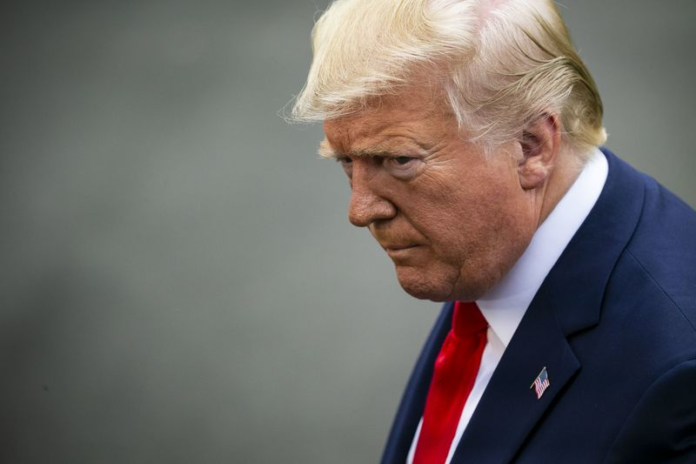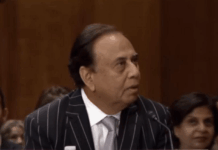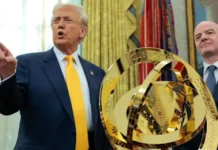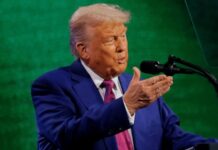
Donald Trump has testified in the defamation trial brought by writer E Jean Carroll, but his much-anticipated time on the stand was kept brief.
The civil trial focuses on defamatory comments Mr Trump made about Ms Carroll in 2019 while in the White House.
He was found liable of sexually assaulting Ms Carroll in the 1990s, though he continues to deny the attack.
But it is for that reason, the court had to spend much time debating the scope of his testimony on Thursday.
Judge Lewis Kaplan, who is overseeing the case, insisted that the former US president limit the topics he discussed on the stand, since a separate trial found him liable of sexually assaulting Ms Carroll.
That resulted in the judge and lawyers spending much more time arguing about what Mr Trump would be allowed to talk about when compared to his four minutes of testimony.
Judge Kaplan said the first trial established the facts and the only issue remaining was how much Mr Trump must pay Ms Carroll, if anything.
He left no room for the current Republican presidential frontrunner to go beyond the agreed terms, making it impossible for him to launch into a monologue or to campaign from the witness stand.
It’s perhaps a lesson learned from one of Mr Trump’s other legal battles. In a New York civil fraud trial earlier this month, Mr Trump was initially told he could not give his closing argument. The judge in that case asked whether Mr Trump would keep it short and stick to the matters of the case.
Mr Trump responded with a six-minute monologue in which he argued he was a victim of political persecution.
The defamation trial on Thursday gave the 77-year-old much less leeway.
Asked if he stood by his deposition, Mr Trump said: “100% yes.”
His lawyer Alina Habba then asked if he denied Ms Carroll’s accusation. “That’s exactly right, yes I did,” he responded.
He went on to say “she said something that I considered a false accusation – totally false”.
But Judge Kaplan quickly cut Mr Trump off and told the jury to ignore that last statement.
Finally, Ms Habba asked if her client had ever instructed anyone to hurt Ms Carroll, to which Mr Trump said: “No, I just wanted to defend myself, my family and frankly, the presidency.” The judge again ordered the latter part stricken from the record.
And with that, the testimony was over. A reporter with WCBS heard Mr Trump say as he left the courtroom: “It’s not America. This is not America.”
Earlier in the day, Judge Kaplan warned him to stop interrupting proceedings by “talking loudly”. That included a moment when he was heard muttering under his breath that he had “never met this woman [Ms Carroll]”.
But it’s somewhat familiar territory when watching one of Mr Trump’s trials. While in court, he has often tested its limits and taken significant legal risks.
Testifying outside of the limitations outlined by the judge on Thursday could have theoretically caused Mr Trump to face hefty fines or even five years in prison for perjury.
But playing by his own rules is keeping Mr Trump’s base invested and tuned into his legal troubles.
And more importantly, it’s leading to considerable press coverage at a particularly important time for the politician. After the New Hampshire primary brought him another significant win, the former New York real estate mogul appears set to become the Republican presidential nominee.
Ronnell Andersen Jones, a professor of law at the University of Utah, told BBC News this case shows the “wide gap” between Mr Trump’s strategies in court and on the campaign trail.
While the former president and his lawyers may want to convince the jury that his comments in the White House did not show “ill will that warrants punitive damages”, that is easier said than done considering his actions.
“This will be a hard row to hoe, given that this same jury is daily receiving new evidence that the defendant, outside the courtroom, continues to spread the lie undeterred,” Ms Jones said.
The defamation trial will resume on Friday at 09:30 ET (14:30 GMT) with closing arguments. It is not yet known if Mr Trump will attend.
ALSO READ:




